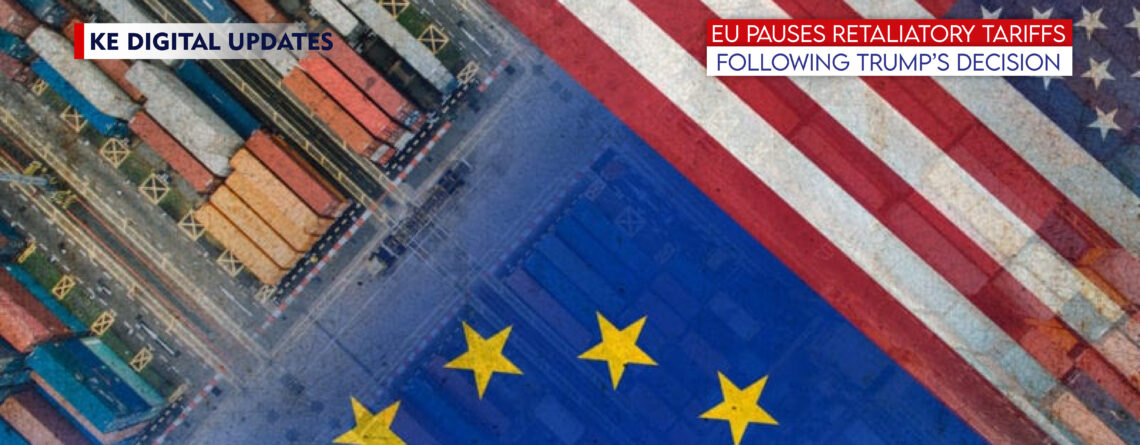In a significant move aimed at fostering dialogue and reducing trade tensions, the European Union (EU) has announced a 90-day suspension of its retaliatory tariffs against the United States. This decision comes in response to U.S. President Donald Trump’s declaration of a similar 90-day pause on “reciprocal” tariffs, signaling a potential thaw in the ongoing trade dispute between the two economic powerhouses.
A Step Toward Negotiations
European Commission President Ursula von der Leyen emphasized the importance of this pause as an opportunity to engage in constructive negotiations. She reiterated the EU’s commitment to finding a balanced and mutually beneficial resolution to the trade conflict. However, von der Leyen also issued a cautionary note, stating that the EU’s countermeasures would be reinstated if the negotiations fail to yield satisfactory outcomes.
Background of the Trade Dispute
The trade tensions between the EU and the U.S. escalated when President Trump imposed tariffs on steel and aluminum imports in March. In retaliation, the EU had announced higher duties on a range of U.S. imports. The reciprocal measures were seen as a tit-for-tat response to what the EU considered unjustified and harmful trade policies.
Uncertainty Persists
Despite the temporary pause, specific tariffs the U.S. imposes remain in place. These include industry-specific tariffs and a 10% flat-rate minimum tariff on all nations. Analysts have expressed concerns about the unpredictable nature of Trump’s trade policies, warning that such volatility could deter investment and slow global economic growth.
EU’s Broader Strategy
While the EU remains committed to resolving its trade differences with the U.S., it is also taking steps to diversify its trade partnerships. The bloc actively engages with countries that account for a significant share of global trade, aiming to reduce reliance on any trading partner. Additionally, the EU is working to address internal market barriers to strengthen its economic resilience.
Challenges Ahead
The unpredictability of U.S. trade policy under President Trump has been a recurring theme. His administration’s abrupt shifts in stance have created an environment of uncertainty, complicating efforts to establish stable and predictable trade conditions. Trump’s criticism of the EU’s trade practices, including its value-added tax, has further strained relations.
Conclusion
The 90-day pause on tariffs by both the EU and the U.S. represents a tentative step toward de-escalating trade tensions. However, the path to a comprehensive and lasting resolution remains fraught with challenges. As negotiations unfold, the global economic community will watch closely, hoping for a breakthrough promoting stability and growth.








Leave a Reply